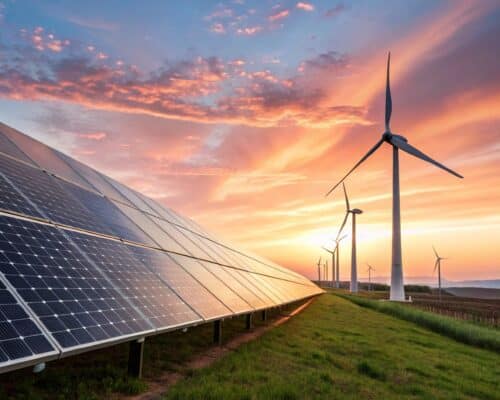Articles
Carbon Capture and Storage: Pros and Cons
Carbon capture and storage (CCS) provides a pathway towards reducing fossil fuel-related emissions and bolstering hard-to-abate carbon intensive industries. Additionally, it provides benefits like economic growth and job creation and can be crucial to the global low-carbon shift. However, questions remain regarding its high costs and varying effectiveness.
The Growing Burden of Climate, Water and Energy Crises on Women
women still find themselves in disproportionately disadvantaged positions compared to their male counterparts, particularly in rural Bangladesh and India. As countries strive for equal opportunities and to make the world a better place, they must accelerate efforts for clean solutions.
Carbon Credits and the Problem With Fossil Fuel Companies
Fossil fuel companies are increasingly relying on questionable carbon credits as they face mounting pressure to meet climate targets. Instead of phasing out polluting fuels, the industry is now rebranding them as low-carbon, carbon-neutral and clean. But, are they?
Global LNG Outlook 2023: Is There a Future for LNG?
Global LNG markets will remain volatile for the rest of the decade, negatively impacting Southeast Asia. The region's carbon emissions-intensive gas-to-power build-out exacerbates the problem. With a myriad of problems from LNG and gas-to-power usage, energy economics dictate that renewables development is the best path for Southeast Asia.
Japanese Technology Expansion: Southeast Asia Pays the Price
This year's G7 meeting, which Japan will chair, remains an important moment for its international credibility in the battle against the climate crisis.
Fossil-linked Energy Firms Have High Emissions and the Room for Denial is Shrinking
The first set of globally aligned sustainability and climate-reporting standards is expected to be published in June 2023. The news was announced at the World Economic Forum in Davos in January 2023 and chief among the new requirements is emissions reporting, including Scope 3.
EV Battery Mining and Pollution in Indonesia
With China’s support, Indonesia’s EV battery mining practices are scarring landscapes, polluting air and harming communities. Will the industry act to end these practices?
Would Pakistan’s Long-term Power Purchase Agreements Become Roadblocks to its Solar Energy Revolution?
The new Fast Track Solar Initiative aims to substitute solar PV for expensive fossil fuel power generation. Like many countries in Asia, which have been priced out of liquefied natural gas (LNG) markets after Europe’s ‘buy-at-any cost strategy’ to avoid reliance on Russian gas, Pakistan too has been on the lookout for alternatives that offer economically priced and reliable energy supply.
Facebook’s Renewable Energy Progress: Is It Enough?
Facebook reached 100% renewable energy and net-zero for operational emissions in 2020 – goals that were set in 2018. These are good stepping stones, but they make a small impact based on the scale of the business. Scope 3 emissions are still high and will be Facebook's new carbon-neutral target in the coming decade.
Ammonia: Fuel of the Future?
Ammonia acts as an energy carrier similar to hydrogen. However, ammonia has several traits that make it more promising than hydrogen for the global energy transition. Regardless, green ammonia production costs remain prohibitively expensive for widespread adoption.
Google Turns Sustainability Initiatives Into Reality
Google is known for being at the forefront of sustainability. Its initiatives are far reaching, ambitious and transparent. This goes beyond internal targets, like being carbon-neutral by 2030, but extends to how it influences the world and helps consumers make informed, sustainable choices. Its programs make it a sustainability leader in the technology industry.
What Will It Take For Japan To Achieve Carbon Neutrality by 2050?
Japan prepares to host this year’s G7 meeting in light of public criticism for its lack of decarbonisation progress and a continued obsession with fossil fuels. However, the country is now uniquely positioned to prove its critics wrong. Doing so will unleash various positives, both for Japan and the region.
The Pros and Cons of Ethanol: Does It Have A Place In The Future?
Ethanol is a renewable alternative to gasoline and diesel. However, its production and use have significant negative impacts on the environment that will become more pronounced as climate impacts increase. Understanding these pros and cons is crucial to effectively growing and using the biofuel as part of the energy transition.
Most Popular
Most Popular
Categories
-
10
-
34
-
126
-
4
-
17
-
46
-
52
-
11
-
10
-
15
-
24
-
6
-
1
-
5
-
6
-
279
-
199
-
17
-
24
-
1
-
1
-
23
-
39
-
44
-
87
-
18
-
86
-
41
-
17
-
11
-
43
-
50
-
86
-
293
-
22
-
44
-
36
-
10
-
42
-
36



